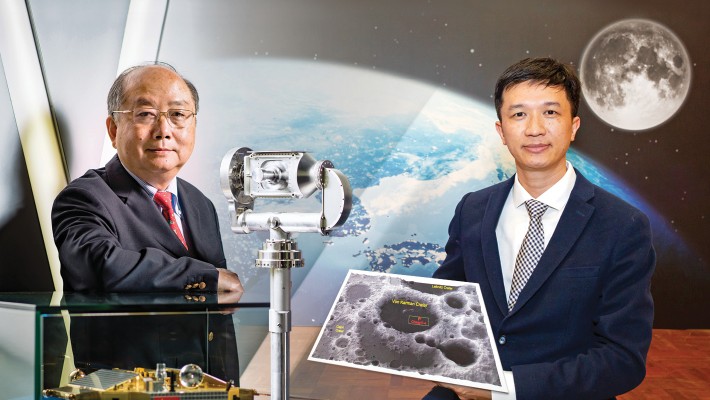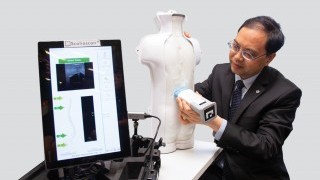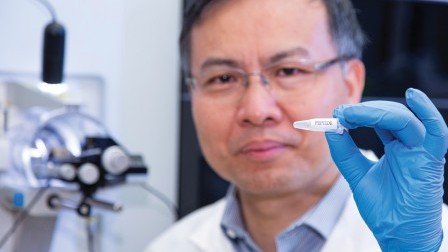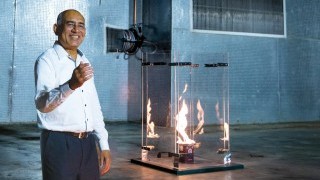Scholars named Leader of the Year for their contributions to China’s lunar exploration
Other Articles
Two PolyU scholars have won the Leader of the Year Award 2019 presented by Sing Tao News Corporation for their outstanding contributions in the historic landing of the nation’s Chang’e-4 lunar probe on the far side of the Moon. Professor Yung Kai-leung, Associate Head of the Department of Industrial and Systems Engineering and Sir Sze-yuen Chung Professor in Precision Engineering, and Dr Wu Bo, Associate Professor in the Department of Land Surveying and Geo-informatics, won the award in the Education/Professions/Technology and Innovation category.
We encourage young people with an interest in scientific research to explore the universe, to potentially help reveal, not only the secrets of the origins of humanity, but also the earth’s future.
The research team led by Dr Wu Bo developed a lunar topographic mapping and geomorphological analysis technique to help find the best location for the Chang’e-4’s landing. In 2016, Dr Wu and his team began amassing large volumes of lunar remote sensing data to create topographic models and geomorphological maps of potential landing regions, with the aim of finding an area that was flat enough to enable the lander to touch down safely and for the rover to explore freely.
Meanwhile, Professor Yung’s team, in collaboration with the China Academy of Space Technology, developed a Camera Pointing System which was mounted on the upper part of the probe’s lander, enabling the spacecraft to send back stunning images – providing the world with the first-ever glimpse of this uncharted region. Weighing just 2.8kg, the system was designed to be able to perform a wide range of motion functions despite the Moon’s low-gravity and hostile environment.
Dr Wu said the success of the landing was due to the combined efforts of numerous scientists and engineers working behind the project. Professor Yung added that the award would have a positive effect in attracting talent to aerospace research.
PolyU is the only university in Hong Kong that has contributed to this space mission. The University has adopted a cross-disciplinary approach, integrating its pool of expertise and resources to develop sophisticated and effective solutions to assist the nation’s space missions, including the Chang’e-5 lunar exploration and China’s first mission to explore Mars later this year.






